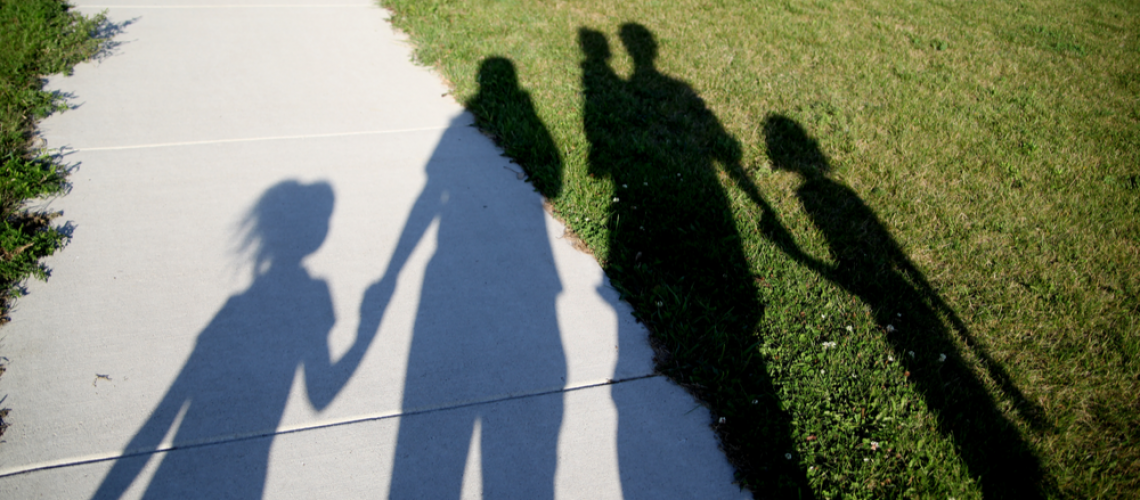

Dr. Sam Himelstein
Co-Founder and CEO, Family First Psychotherapy, Inc.
3 Steps to Promote Resilience and Self-Care for Parents (and your kids) in Uncertain Times
For the past couple of weeks life on our planet has been significantly disrupted by the COVID-19 pandemic.
Many of our traditional familial rituals like weddings, births, and even funerals are being cancelled or tremendously modified to meet stay at home/quarantine orders. Out of concern we’re spending less time with our elders and those family members who have pre-existing conditions because they are more susceptible to the virus than others. And for many of us our children are now home from school. If we still have to work this presents challenges we may not be used to: coming up with school schedules to make sure they’re getting academically nourished. If we had a job and got let go, our distress may be palpable at home.
It would be an understatement to write that the families on our planet are simply stressed out.
And we as parents are still charged to care for our children; create those school schedules, manage our stress, and assure our kids that everything is “going to be okay,” even if we don’t fully know that ourselves.
This is why self-care and resilience are so important. If we want to care best for our families, we must tend to ourselves. I wrote a first version of this post geared toward therapists and educators on my other blog, the Center for Adolescent Studies, and was inspired to write this because I am both a parent and am currently supporting parents through this difficult time. So I wanted to write this short post as a way to promote self-care and resilience during these uncertain times. It isn’t exhaustive, but rather an invitation to plant your own seeds of self-care so that you and your family can build resilience during these difficult times.
What is Resilience? What is Self-Care?
Simply put, resilience is our ability to overcome difficulty. On an individual level, if our difficulty is too extreme to overcome, our central nervous system has the capacity to send us into the fight, flight, freeze, and feigned death responses. Often when that happens a sense of fear and lack of safety arise and there is a stronger potential to become traumatized. When this happens on a familial level (within an entire family, no matter the make-up), oftentimes more fights, discord, and tension arise and relationships suffer.
The way to mitigate that stress response is to make it manageable. That’s where self-care strategies come into play. Self-care is the set of strategies that we rely on to overcome difficult experiences, both individually and collectively as families. When we do this as a family, we are practicing familial resilience.
Therefore, it’s important to think of self-care both for yourself as an individual and your family as a whole. No, individual self-care isn’t selfish. It helps you refresh your bucket so that you can show up as your most present self to your family. That helps you contribute to familial self-care and resilience.
Self-care is oftentimes thought of as a reactive: “x happened, so now I’m going to do y,” which is not untrue, but if we want to develop resilience the key is to have a strong self-care routine that’s practiced proactively.
One Layer Deeper: 3 Types of Self-Care
Generally, I tend to think of self-care strategies within three major categories or “buckets:”
- Regular Relaxation Response: This is the calming the central nervous system so that our parasympathetic “relaxation response” is activated. This is our “rest and digest” system and is necessary on some level to feel physically and emotionally safe. These strategies can include light exercise that produce endorphins, short meditations and relaxation-based training (e.g., deep breathing), music, hiking and nature, massage, and so on. What’s important for this strategy is that the relaxation response is regularly cultivated. More on routines below.
- Effortful Training: Paradoxically, this is on the other side of the spectrum than the regular cultivation of the relaxation response. This is where we stress our system to a degree, but with a payout. Exercising, eating healthy, sleep routines, prolonged meditation; these can easily be difficult things to do and may not feel “good” or “calming” in the moment, but they have a positive payout for our minds and bodies.
- Creative Expression: This strategy has to do with the flow of your creative juices. These methods inspire innovation, reflection, inspiration, and its namesake, creativity. Writing, art, dance, singing, editing, and so on can foster creativity.
Examples of strategies from each of the above self-care buckets really are in the eye of the beholder. It’s important to choose strategies that work for you and facilitate those respective experiences. It’s also important to be honest about which strategies actually lead to health long term rather than simply being a crutch in the moment. I support a lot of individuals in recovery in my therapy practice that would be quick to tell you that drinking alcohol definitely activates their relaxation response. Hence, not everything that makes you feel relaxed is the best thing for your health long term.
With the above in mind, here are three simple steps to help you build both individual and familial resilience through self-care strategies, especially in uncertain times. Remember, this isn’t exhaustive. This post is meant to help you plant a seed that you can continue to nourish over time.
1) Identify at least 1 strategy from each self-care category from above for yourself, and one for your family
What helps your nervous system relax? Try to identify at least 1-2 (preferably more) activities that can facilitate calmness. Do the same for the other two categories and then (and this is most important) create a draft schedule where you do at least one thing, however short, per day. The schedule should be achievable and realistic. Do the same for family activities. They can be short and achievable. Younger children may be more amenable than teens. As of writing this I did a family meditation with my 6 and 8-year olds. Teenagers may not be as excited so for them you may not need to try and schedule something every day, but make sure to “schedule,” i.e., pepper them in throughout the week to at least introduce some activities.
For yourself, creating the routine is as important as the strategies themselves. The routine creates predictability and over time, self-care strategies that are predictably practiced will result in resilience. And even if you fail miserably at getting your partner, kids, parents, whomever to engage in familial self-care activities, know that by doing them for yourself you are still developing familial resilience.
The more you take care of yourself, the more your family benefits.
Here are a couple of my individual and family strategies for the sake of example:
- Regular Relaxation Response:
- Individual: Deep, diaphragm-based breathing
- Family: Family meditation & light hiking in nature (where I live, the redwoods)*
- Effortful Training:
- Individual: Exercise; basketball, pickleball, and self calisthenics training*
- Family: Family exercise and “PE” time when I get home from seeing my patients (daily M – F)
- Creative Expression:
- Individual: Writing
- Family: Pretend play with my kids, family gratitude time before bed
Anything with an asterisk (*) above means I have had to modify them in some way due to the stay at home order (i.e., not as much hiking in the redwoods, not going to the gym but working out at home).
Also please note: My colleague and I will be facilitating a live webinar where we go much deeper into how to develop the inner self-care/resilience strategies such as mindfulness, self-compassion, and how to talk about and take self-care to the next level with your family. Please scroll down to the end of this post for more information.
2) Stay apart physically, connected socially
Probably deserving a whole separate bucket for self-care above, is staying connected with people we love and care for, especially those family members we’re trying to protect from the COVID-19 spread. At this point many of us have heard countless calls for “social distancing” as a way to fight the spread of the coronavirus. This of course is extremely important however it isn’t the “social” distancing that’s important. It’s the “physical” distancing that we need to follow.
If you are in an area with a stay at home order, don’t forget that you can reach out to your friends, family, and colleagues to check in, share gratitude, compassion, and so on through phone calls and video calls. Set up a free Zoom or Skype account to see and meet with your friends and family live (i.e., stay socially connected) but physically at a distance. Process your feelings, invoke your others on the path of practice self-care, and set-up accountability partners.
And especially meet with family members. My family and I have had a number of Zoom calls with friends and family; two where specifically I have set up calls between my parents and kids so they can have special grandpa/grandpa time. If Zoom or Skype intimidate you, you can always set up a phone call.
3) Develop a Home Routine
Disclaimer: If you aren’t stuck at home, AKA you’re a healthcare, mental healthcare, or some other essential worker who is under even more stress treating or dealing with COVID-19 (thank you doctors, thank you grocery store clerks), you’re probably working a lot harder than usual. For you, make sure to take step 1 above seriously so that you can get some activation of the relaxation response, refresh, and reset yourself. Your work most likely needs that, and your kids/family are watching. And again, thank you for you the work you do.
If you are stuck at home more than expected and feeling cooped up, it’s important to create routine. Just like having an actual routine for self-care, having a general routine throughout the day can help you not get stuck in the dwelling of anxiety, depression, or other strong emotions.
It’s easy to turn on the TV and constantly watch the news, take extra naps (that was me the first few days), and have a hard time cultivating motivation. If you work from home, develop your self-care routine within your overall work schedule and social time.
If you’re a parent and have your kids at home, develop a schedule for both them and you to help facilitate learning/academic times to bring some structure to your day. And no, it doesn’t need to be extreme with kids waking up to do math at 7am. Make it feasible for you.
Again, the role of routines is that they create predictability. In uncertain times this is even more important because our reliance on regular predictability; going to work, kids at school, social activities on the weekends, isn’t being awarded to us. So inner predictability can go a long way . Predictability over time, when practiced healthily (i.e., via your self-care strategies), leads to resilience. And when this is done so on the family level, leads to familial resilience.
